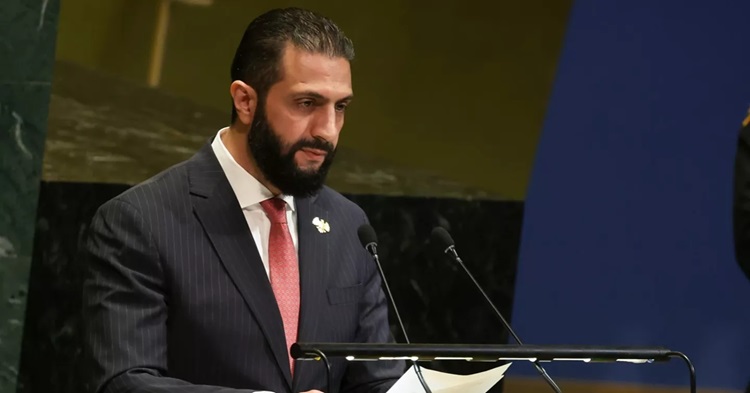Syrian president addresses UN for first time in nearly six decades


For the first time in almost 60 years, a Syrian president addressed the UN General Assembly on Wednesday, marking a symbolic return to the world stage after decades of dictatorship and conflict.
President Ahmad al-Sharaa, who came to power following the collapse of Bashar Assad’s regime last December, told the Assembly: “Syria is reclaiming its rightful place among the nations of the world.” Across Syrian cities, crowds gathered in public squares to watch his speech on giant screens, waving national flags in celebration.
The last time a Syrian head of state spoke at the UN was in 1967, when Noureddine Attasi addressed the Assembly shortly after the Arab-Israeli war that saw Damascus lose control of the Golan Heights. Since then, Syria’s representation had been limited to foreign ministers, with the Assad family ruling for 54 years until its abrupt fall during a lightning insurgent offensive led by al-Sharaa.
In his address, al-Sharaa condemned Israel for continuing to threaten Syria even after Assad’s ouster, calling its actions a danger to the region. Negotiations are underway for a possible security deal that could revive the 1974 disengagement agreement, though Israeli Prime Minister Benjamin Netanyahu has downplayed prospects of an imminent breakthrough. Israel says any deal must safeguard its security and protect the Druze minority in Syria.
Al-Sharaa, who has sought to reassure Syria’s diverse communities amid sectarian tensions, pledged to investigate reported atrocities by fighters linked to the new government. “I promise to bring anyone whose hands are tainted with the blood of Syrian people to justice,” he said.
The president also highlighted his administration’s campaign to dismantle Syria’s Captagon drug trade, which flourished under Assad to finance his government under sanctions. He called on Western countries to lift Assad-era sanctions, which he said now only harm ordinary Syrians.
U.S. President Donald Trump, who met al-Sharaa in May, has already ordered many sanctions lifted, though the toughest measures imposed by Congress in 2019 require legislative approval to be removed.
Outside the UN, Syrian divisions were visible as diaspora groups staged rival demonstrations. Supporters waved Syria’s new three-starred “revolution flag,” while Druze protesters carried their community’s banner, denouncing al-Sharaa’s past ties to an insurgent group once affiliated with al-Qaida.
Despite the controversies, many Syrians at home and abroad see al-Sharaa’s UN debut as the beginning of a new chapter after decades of authoritarian rule.
